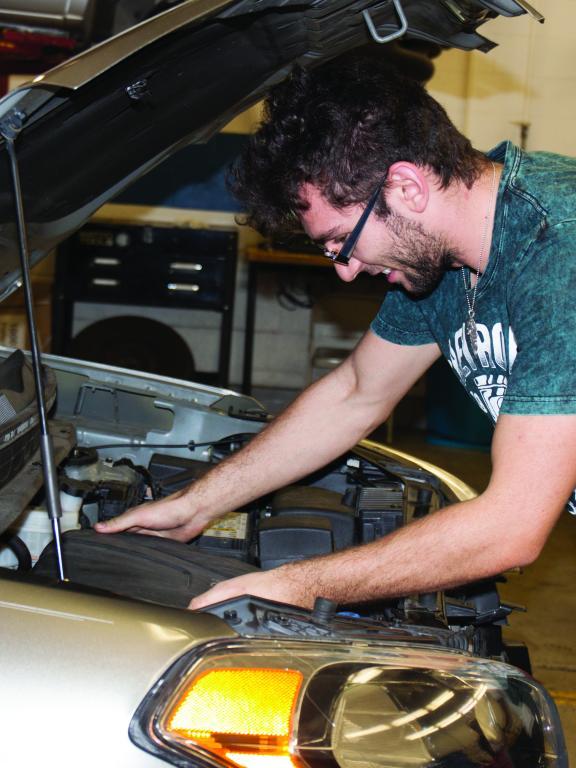Our Automotive Systems Technology – Electrical/Electronics program includes technical and academic coursework through classroom and lab experiences. Emphasis is placed on auto electricity, engine performance, transport technology, and transport electricity.
This is a certificate program and requires fewer credits and less time to complete than a degree or diploma program. Certificate programs can be taken alone but are often taken along with other Automotive programs.
The Automotive Systems Technology program also offers degree, diploma, and additional certificate options.
This certificate is also available to high school students through our Career & College Promise program.
Skills You’ll Learn
The Automotive Systems Technology program is focused on job-related skills in the following areas:
- Following recognized automotive industry standards to demonstrate proficiency in troubleshooting and repairing automotive transmissions, drivetrains, transaxles, and axles
- Demonstrating the use of automotive industry standards for engine repair and performance
- Demonstrating an understanding of transportation technologies, including climate control, electrical and electronic systems, and emerging technologies
- Diagnosing and repairing suspension/steering and brakes systems
Career Opportunities
There are many employment opportunities for Automotive Systems Technology graduates, including:
- Area garages
- Automotive dealerships
- Brake shops and tire stores
- Self-employment
- Service manager, parts manager, or service writer
- View more career opportunities
Plan of Study
The recommended course sequence for this program and a complete list of related classes are available in the Academic Catalog. Click the button below to view a copy of this plan of study, which is also available as a PDF.
